On March 24, the international conference on “Subjekitve Zurechnung in der internationalen Strafrechtsdogmatik” was successfully hosted at the Law Building of Fudan University's Jiangwan Campus. The conference was organized by Fudan University Law School and co-hosted by the School of Law at the University of Hamburg, Germany, and the School of Law at Kyoto University, Japan. This international conference is part of the academic exchange activities conducted under the cooperative framework of 'Fudan University - University of Hamburg - Kyoto University', with participation from more than thirty experts and scholars from seventeen universities in China, Germany, and Japan.
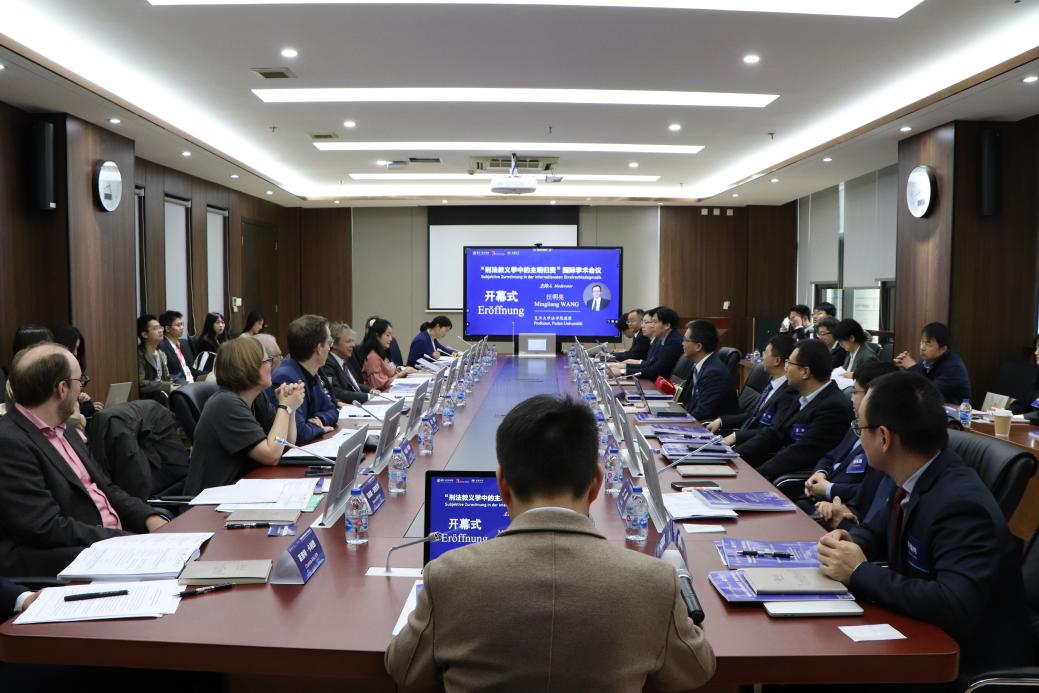
The opening session of the conference was chaired by Prof. WANG Mingliang from Fudan University School of Law. Prof. DU Yu, Dean of Fudan University School of Law, welcomed the Chinese and international experts participating in the conference and expressed his anticipation for the conference to foster deeper research into the issues of attribution in criminal law theory. Prof. Kanako Takayama from the School of Law at Kyoto University then thanked the organizers for their coordination and invitation, and looked forward to further academic exchanges with Fudan University Law School.
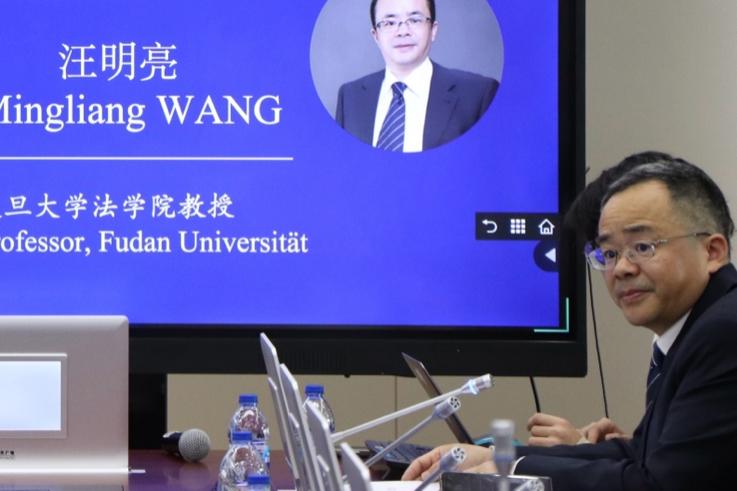
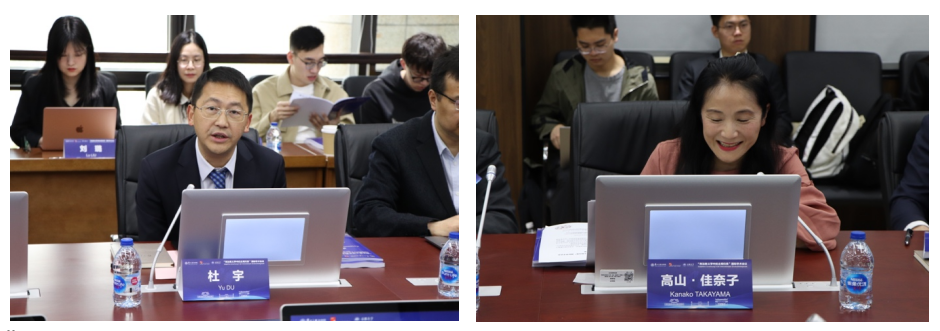
The first session of the conference, themed “Zurechnung im Strafrecht (Imputation in Criminal Law)”, was chaired by Prof. LIANG Genlin from Peking University Law School. Prof. Jochen Bung from the Faculty of Law at the University of Hamburg presented on “Universalgrammatik subjektiver Zurechnung (The General Syntax of Subjective Imputation)” discussing the structural foundations and restrictive functions of the concept of subjective imputation. Prof. Kanako Takayama from Kyoto University Law School delivered a presentation titled “Kausalabweichung in japanishcem Strafrecht (Causal Deviation under Subjective Imputation)”, proposing the integration of substantive law with procedural law to construct a doctrinal system for proving subjective imputation. Prof. BAI Langtao from East China Normal University Law School spoke on “Verhaltensnorm, Pflichtverletzung und Erfolgszurechnung (Behavior Norms, Duty Violation, and Outcome Attribution)”, suggesting that within the framework of outcome attribution, intention and negligence involve a relationship between higher and foundational layers.
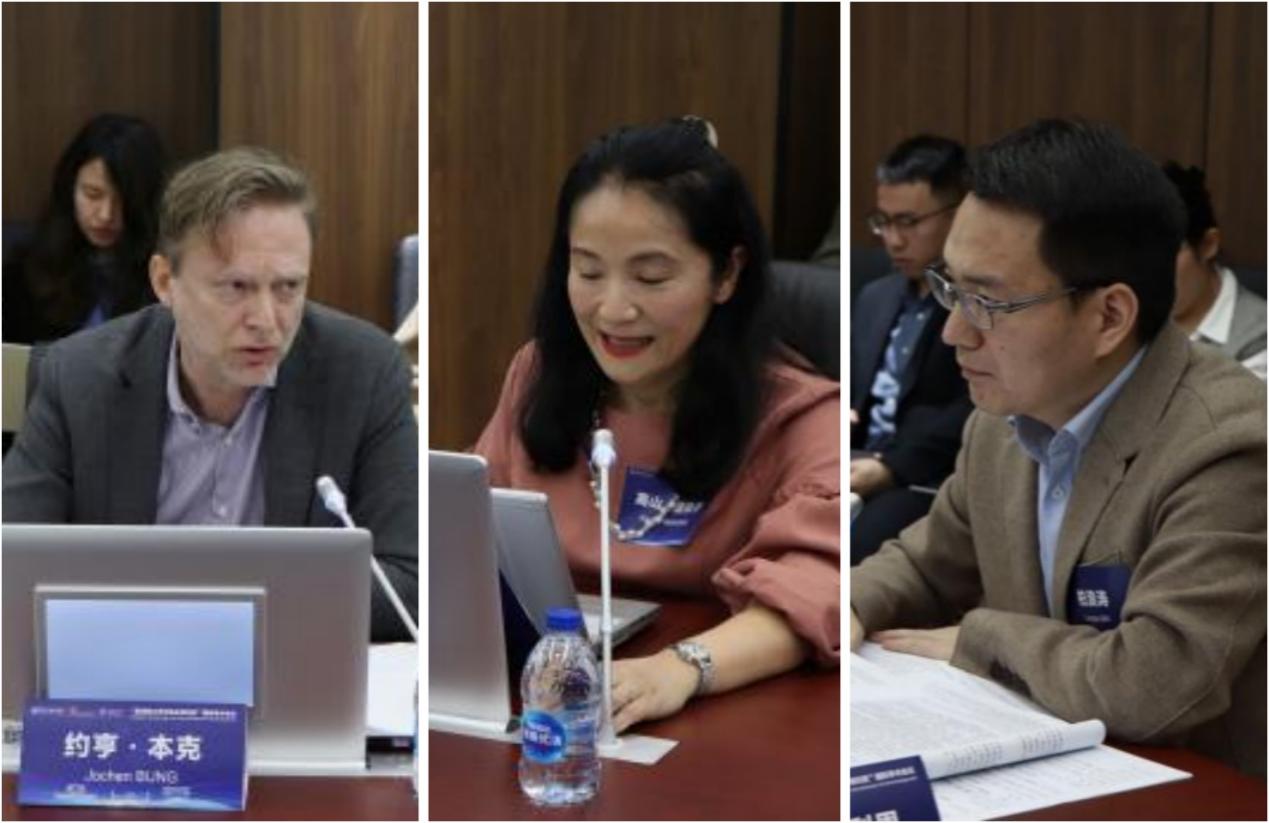
After the presentations, the conference moved into a comment and discussion session, chaired by Prof. WANG Chong from Jilin University Law School. Prof. HE Ronggong from Wuhan University Law School, with the reading assistance of Associate Prof. YUAN Guohe from Fudan University Law School, presented on The “Die zeitgenössische Herausforderung der subjective Zurechnung (Epochal Challenge of Subjective Imputation”.He supported the perspective of using the actor's conduct as the basis for criminal imputation and engaged in a detailed discussion with Prof. Jochen Bung on specific issues such as corporate crime, artificial intelligence, and the expansion of intent under subjective attribution. Following this, Prof. DU Yu from Fudan University Law School reviewed Prof. Kanako Takayama's report and proposed focal points for future research on the integration of subjective attribution with Chinese criminal law theory. Prof. Milan Kuli from the University of Hamburg Law School agreed with the fundamental position put forward by Prof. BAI Langtao regarding the link between outcome attribution and behavioral norms, emphasizing that the determination of behavioral norm content requires further study.
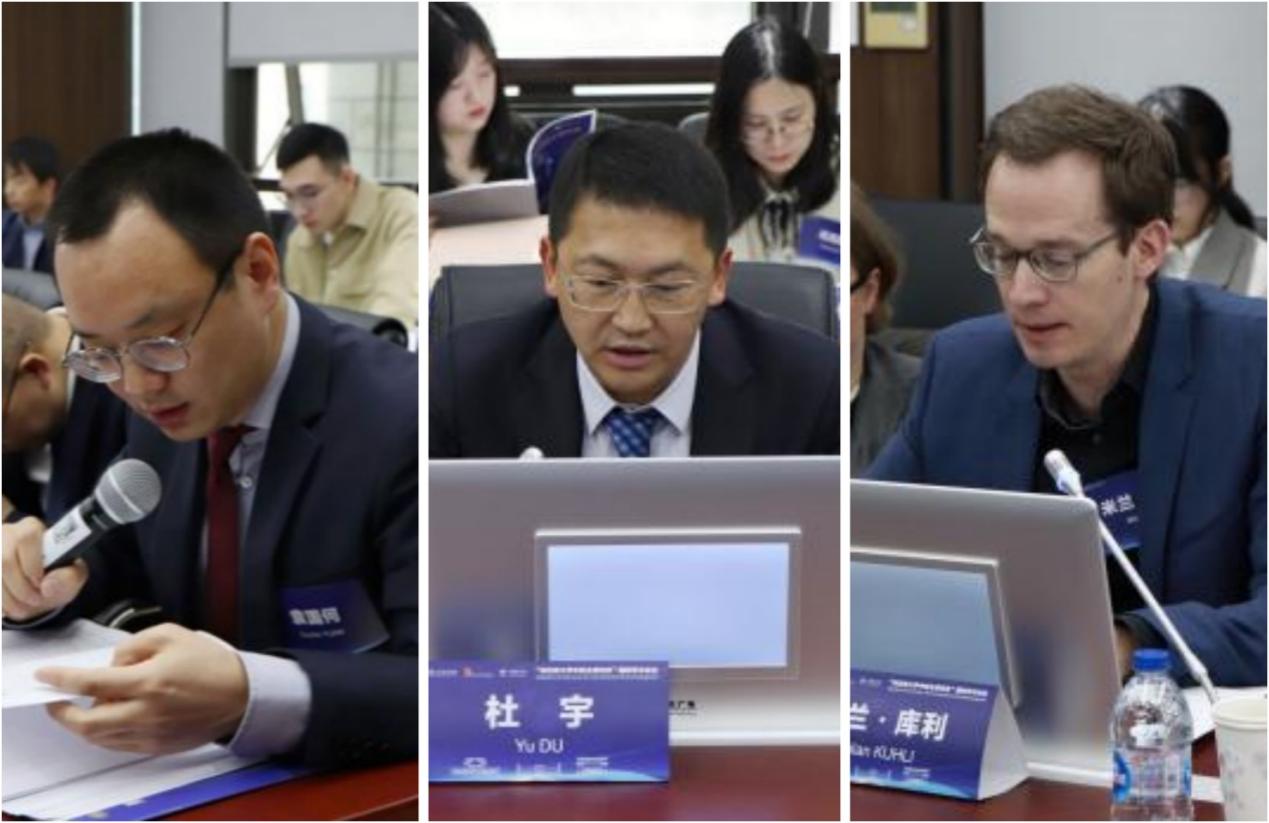
The second session of the conference, titled “Vertiefung der subjektiven Zurechnung (Theories of Subjective Imputation and the Applications)” was chaired by Prof. JIANG Su from Peking University Law School. Prof. LAO Dongyan from Tsinghua University Law School presented “Eine typologische Konstruktion von subjektiven Zuschreibungstheorien in funktionalistischer Perspektive (Typological Construction of Subjective Imputation Theory within a Functionalist Perspective)”, offering a theoretical construction of subjective imputation within a reflective functionalist framework. Dr. Markus Abraham from the University of Hamburg/Freiburg discussed “Subjektive Zurechnung und Handlungsgründe im weiten Sinn (Subjective Imputation and Generalized Motives for Action)”, advocating that the construction of motives for action helps to clarify the elements of crime and limits of penal power at the subjective level of the actor.
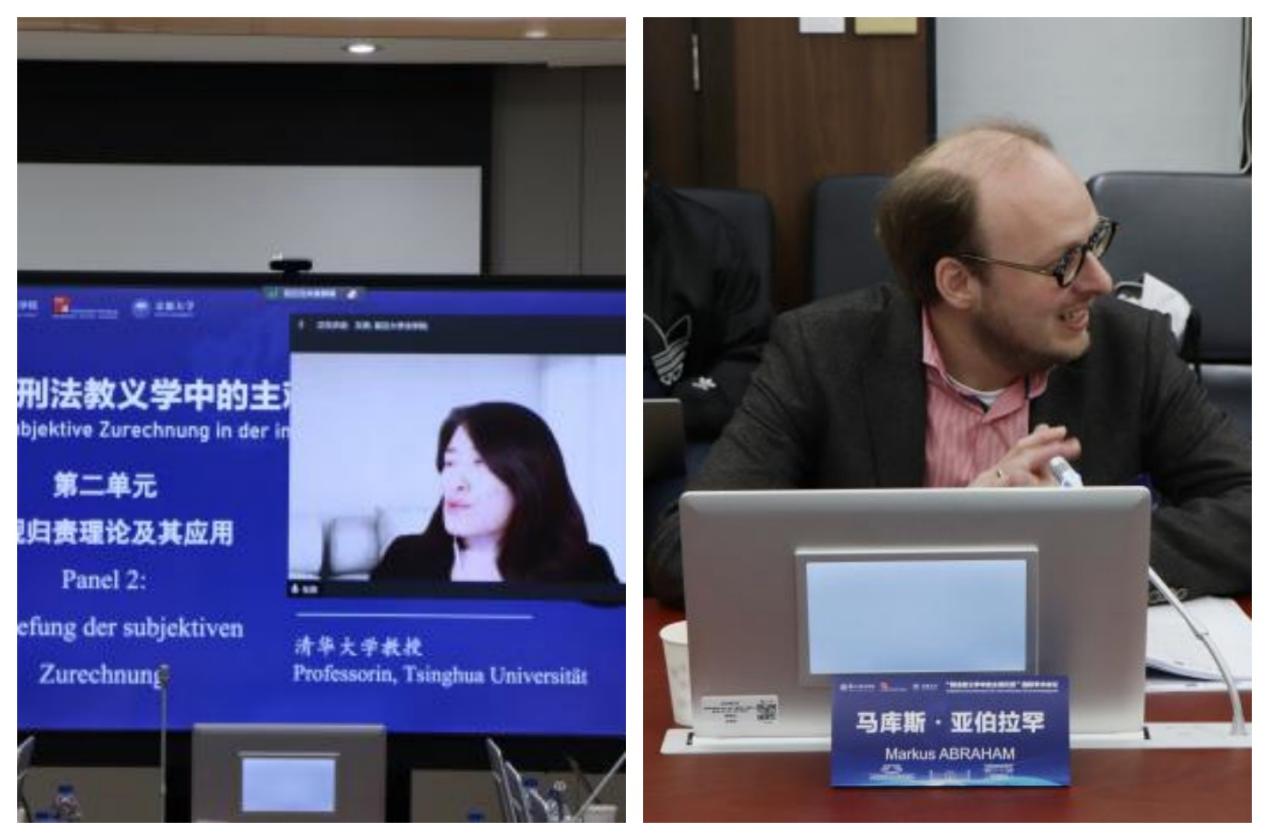
After the presentations, the conference proceeded to a comment and discussion session, chaired by Prof. FU Yuming from the Criminal Law School of Northwest University of Political Science and Law. Prof. JIANG Tao from East China University of Political Science and Law reviewed Dr. Markus Abraham’s report and engaged in discussions incorporating Chinese criminal law theories such as crimes of intent and motive. Subsequently, Prof. Yamanaka Junko from Tokai University Law School in Japan reviewed Prof. LAO Dongyan's report and offered critiques based on Japanese criminal law theory and case law, questioning the functionalist progression of subjective imputation theory.

The third session of the conference, titled “Subjektive Zurechnung durch Vorsatz und Fahrlässigkeit (Intention and Negligence under Subjective Imputation)”, was chaired by Prof. YU Gaizhi from KoGuan Law School, Shanghai Jiao Tong University. Prof. Bernd Heinrich from the Faculty of Law at the University of Tübingen discussed the topic “Zwischen Vorsatz und Fahrlässigkeit (Between Intention and Negligence under Subjective Imputation)”, exploring the possibility of a third form of responsibility between intention and negligence. Prof. CHEN Xuan from Renmin University of China Law School presented “Die subjektive-objektive Unterscheidung bei der Zuschreibungund ihre Überwindung (The Division and Transcendence of Objective and Subjective Imputation in Negligence Offenses)”, arguing that the objective and subjective categories in attribution judgments are inseparable and should be combined with the normative essence of different crimes to reconstruct a responsibility assessment model that aligns with internal rules and practical needs.
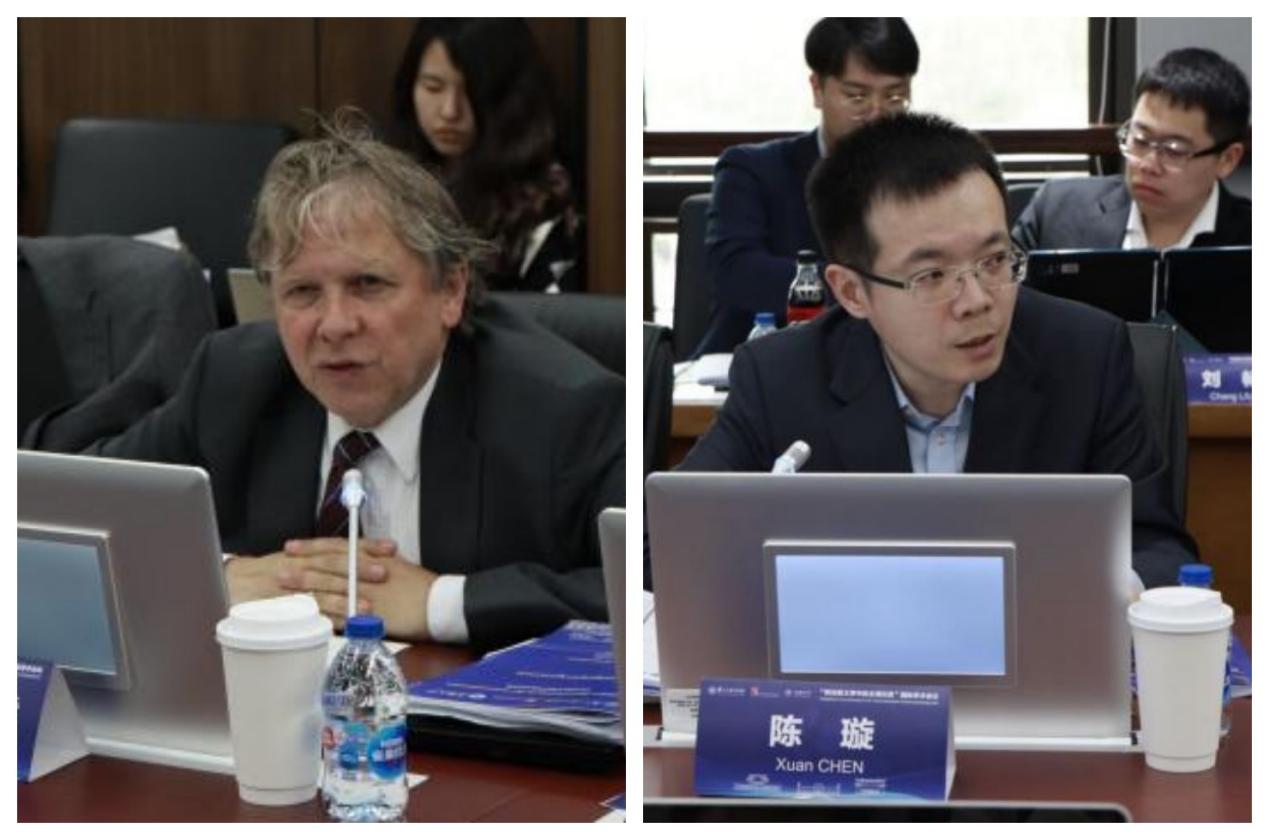
Following the presentations, the session moved into a comment and discussion phase, chaired by Prof. JIANG Tao from the Criminal Law School of East China University of Political Science and Law. Prof. WANG Chong from Jilin University Law School discussed “Abgrenzungsfragen zwischen Vorsatz und Fahrlässigkeit (The Boundary Issues between Intention and Negligence)”, critiquing Prof. Bernd Heinrich’s report by grounding his arguments in the realities of Chinese legislation and jurisprudence, and integrating concepts of cognition and volition from criminal law theory. Subsequently, Prof. Julia Geneuss from the University of Bremen endorsed Prof. CHEN Xuan’s view on activating cognitive abilities to fulfill due diligence obligations and suggested future research possibilities in the areas of cognitive motivation triggers and the specification of external environments.

The fourth session of the conference focused on “Unterscheidung und Zusammenhänge zwischen subjektiver und obejektiver Zurechnung (The Distinctions and Connections between Subjective and Objective Imputation)”, chaired by Prof. BAI Langtao from East China Normal University Law School. Prof. Yamanaka Keiichi from Kansai University Law School, Japan, presented on “Unterscheide und Zusammenhänge zwischen subjektiver und objektiver Zurechnung in der japanischen Straftatlehre (The Distinctions and Connections between Subjective and Objective Imputation in Japanese Criminal Law Theories)”, discussing the systemic placement of unlawfulness and culpability in crime theory through the lens of German and Japanese criminal law theories. Prof. JIANG Su from Peking University Law School addressed “Das Verhältnis zwischen objektiver und subjektiver Zurechnung (The Relationship between Objective and Subjective Imputation)”, reporting on the inherent flaws in the theory of objective imputation and the current state of research on subjective imputation in China. Following this, Prof. Kai Cornelius addressed “Persönliche Vorwerfbarkeit und unklare Rechtslagen (Unclear Legal Situations and Individual Culpability)”, attempting to construct a relative standard of objective attribution for cognitive errors at the subjective level.
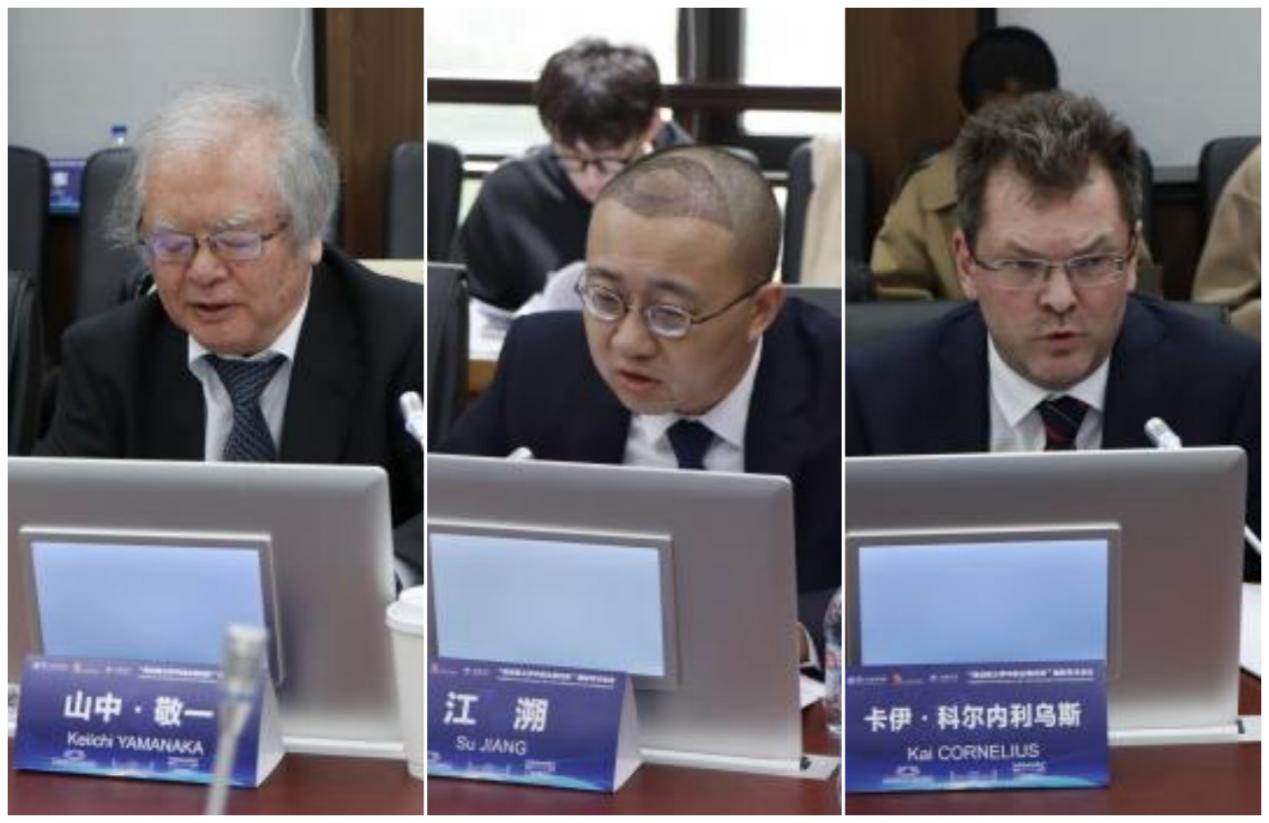
After the presentations, the session proceeded to a comment and discussion phase, chaired by Associate Prof. YUAN Guohe from Fudan University School of Law. Prof. YU Gaizhi from KoGuan Law School, Shanghai Jiao Tong University, critiqued Professor Cornelius's construction of an objectified standard of attribution, drawing on criminal law theory and experiences from Chinese criminal justice practice. Prof. FU Yuming from the Criminal Law School of Northwest University of Political Science and Law reviewed Prof. Yamanaka Keiichi’s presentation with his topic “Die theoretische Entwicklung der Kausalität und die Wahl der chinesischen Strafrechtslehre (The Evolution of Theories of Causation and the Choice of Stance in the Chinese Context)”, proposing that the theory of risk realization could modify the equivalent causation and thereby achieve a reasonable distinction between illegality and liability. Research Assistant Charlotte Kallien from the Faculty of Law at the University of Hamburg commented on Prof. JIANG Su's presentation, attempting to respond to critiques facing the theory of objective imputation by discussing issues related to specific cognitive problems of the actor in German criminal law.
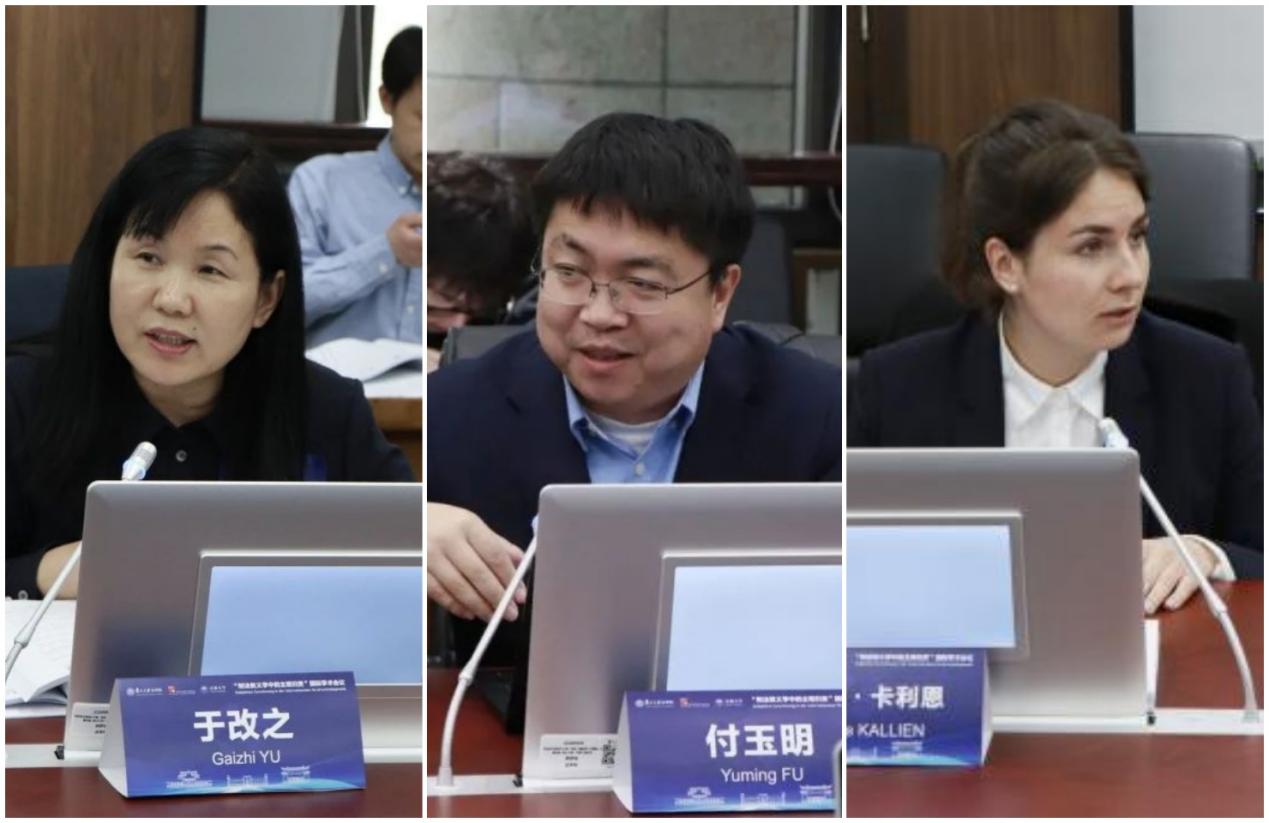
The closing ceremony of the conference was chaired by Prof. DU Yu, Dean of the School of Law at Fudan University, who expressed his sincere gratitude to all the experts and scholars who attended the conference. In his closing remarks, Prof. LIANG Genlin from Peking University Law School noted that the discussions on subjective imputation at this academic conference could bring new increments of knowledge to the study of criminal law doctrine in China, and he warmly congratulated the successful conclusion of the conference. Prof. Jochen Bung from the University of Hamburg, in his summary, highlighted that the theory of subjective imputation had garnered increased attention through this conference and expressed anticipation for more intensive and fruitful academic exchanges among criminal law scholars from China, Germany, and Japan in the future. He also sincerely thanked the organizers for their arrangement and coordination of the conference.
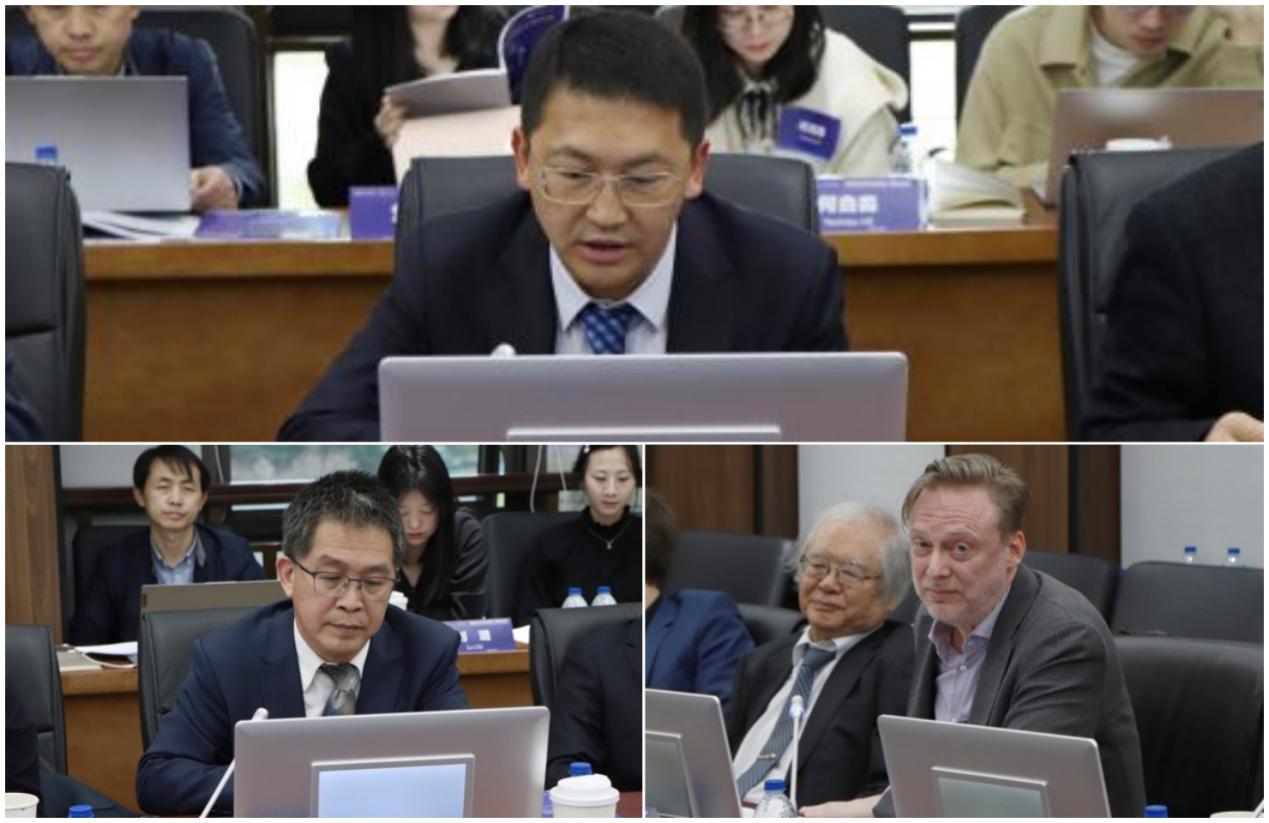
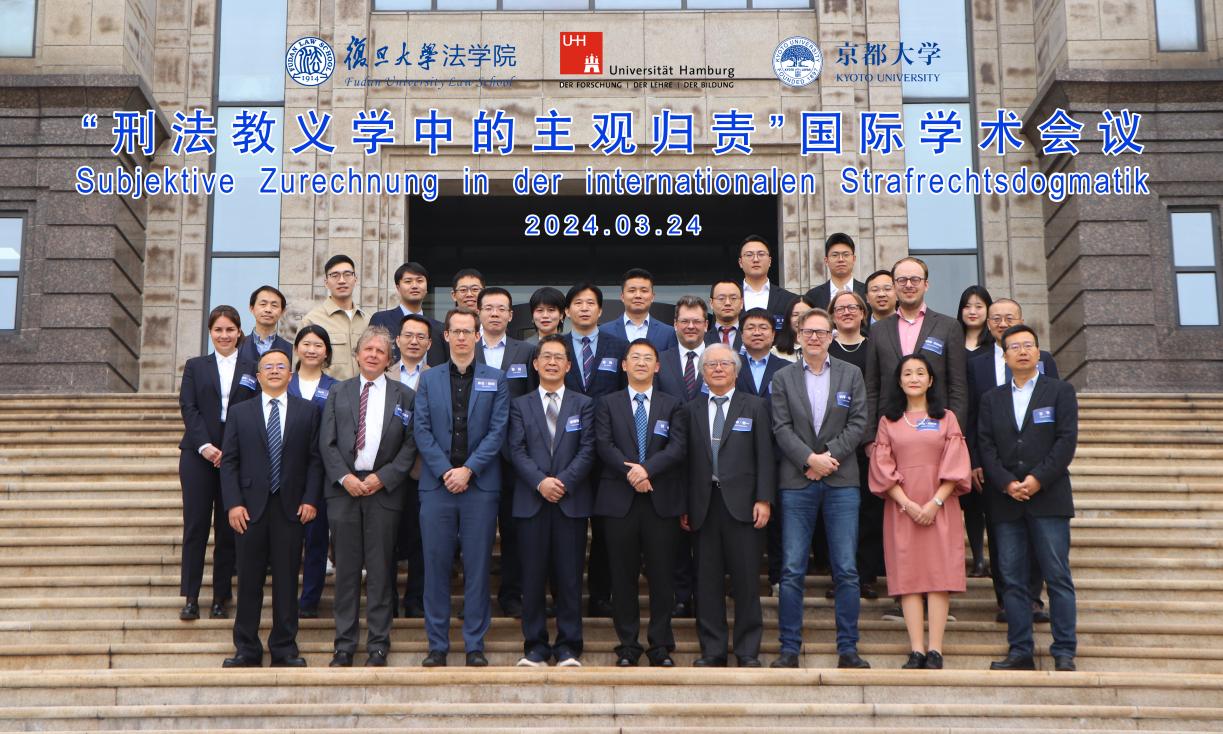
Text by Dr. LIU He
Photo by YAO Jiachen






